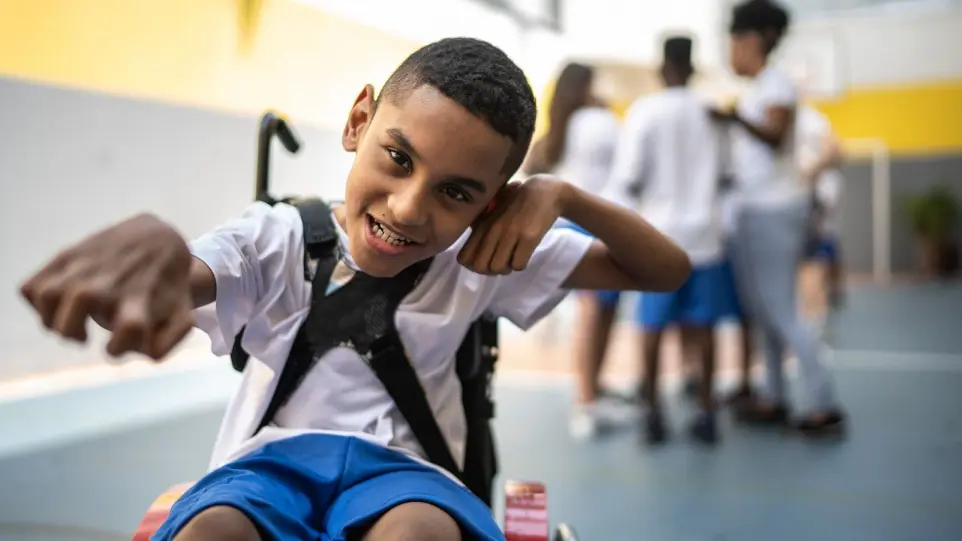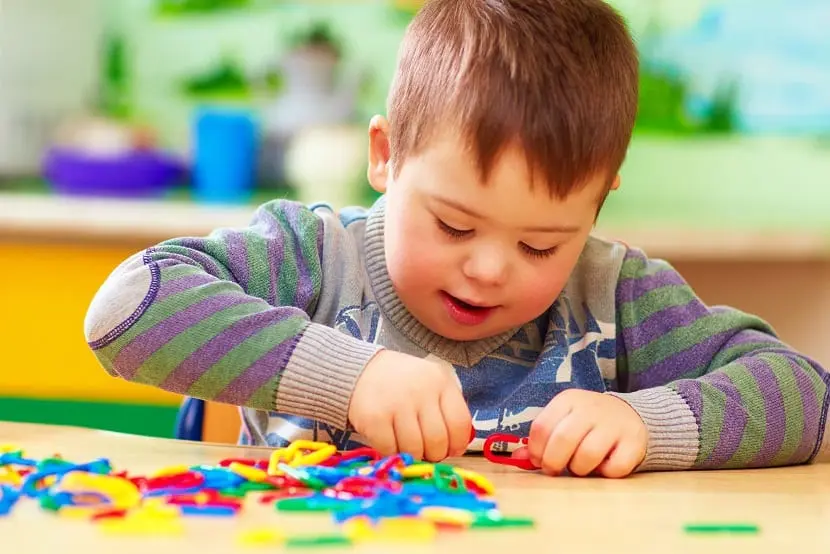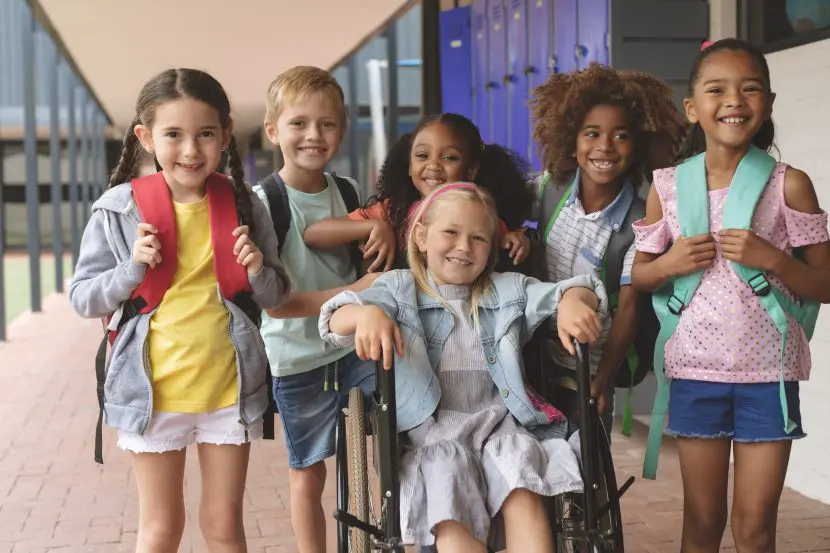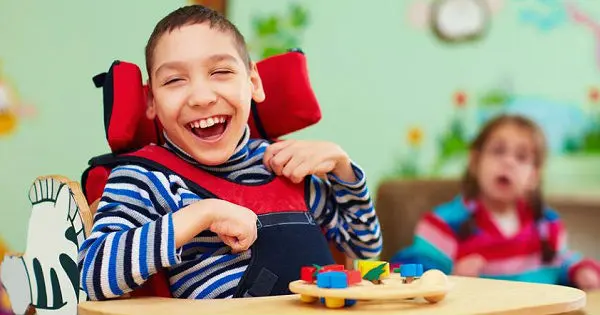- Definition
The Convention on the Rights of Persons with Disabilities, adopted in 2006, defines disability as follows:
“People with disabilities include those who have long-term physical, mental, intellectual or sensory deficiencies that, when interacting with various barriers, may prevent their full and effective participation in society and on equal terms with others.”
The Convention on the Rights of the Child (CRC), adopted in 1989, is the first international treaty to include a specific reference to disability; Article 2 refers to non-discrimination against children with disabilities. Likewise, there is another article, Article 23, devoted entirely to this same matter:
“The States Parties recognize that the mentally or physically disabled child must enjoy a full and decent life in conditions that ensure his or her dignity, allow him or her to be self-sufficient and facilitate the active participation of the minor in the community.” (art. 23 CRC)
Causes
There are numerous causes that can cause disability. Unfortunately, most of these cases could have been avoided through proper prevention and access to necessary treatment. The main causes of disability are the following:
- Genetic problems;
- Diseases (polio, for example);
- Malnutrition;
- Wars (especially due to anti-personnel mines);
- Neglect in hygiene;
- Poverty (often accompanied by the rest of the causes mentioned).
Consequences
- Marginalization and social exclusion
Often, a child's disability is followed by his or her marginalization in society. For example, only around 2% of children with disabilities have access to education.
Furthermore, disability impresses people. In the collective consciousness there is often a belief that people with disabilities suffer a curse or punishment caused by the sins that their ancestors committed in the past. In many regions around the world, children with disabilities are isolated, rejected and considered untouchable.
Above all, this is an evident fact in developing countries, where the majority of children with disabilities are illiterate and live totally isolated from the rest of society. In many cases, these minors are forced to beg in order to survive and live on the streets in situations of extreme poverty.
- Violence
Children with disabilities are at increasing risk of becoming victims of violence due to their inability to defend themselves. Therefore, physical, psychological and emotional violence becomes a sad reality that minors with disabilities suffer in the family, institutional and social environment.
Unfortunately, in some countries a physical or mental handicap can be a reason for infanticide, due to the social and financial burden that these children with disabilities could mean for their family.
- Disability as a cause of discrimination
There are numerous cases of discrimination caused by disability: in areas such as education, accommodation, transport and cultural life, most places and services are largely inaccessible to people with some type of disability. These obstacles are numerous and can be physical (buildings that people with wheelchairs cannot access); institutional (lack of qualified personnel, such as sign language interpreters); or even obstacles that simply stem from intolerance.
Even in developed countries we can observe certain discrimination against children with disabilities: they are often separated from other children, specialized institutions take them away from the family, place them in special classes, etc. In this way, it is impossible for these children to integrate into society and subsequently find employment.
- Rights of children with disabilities
Children with disabilities are equal to other children. According to the Convention on the Rights of the Child (CRC), minors with disabilities have the same rights as any other child.
In addition to the previously mentioned right to non-discrimination, it is necessary to highlight that children with disabilities must enjoy not only the rights guaranteed by the Convention, but also the rights mentioned below.
- Right to adequate treatment
The second paragraph of Article 23 of the CRC, dedicated to children with disabilities, guarantees their right to obtain special assistance and to apply for a government subsidy that is adjusted according to the child's country and the financial situation of their children. parents or guardian.
It is obvious that children with disabilities have the right to special treatment but, in practice, most of them are deprived of even adequate medical treatment. Your chances of recovery, or of living at least with less suffering, are therefore reduced to zero.
- Education rights
Due to the lack of infrastructure, means, knowledge and, above all, goodwill, the majority of children with disabilities do not receive any education; in reality, not even a primary education. In fact, according to a number of international statistics, only 2% of children with disabilities have the privilege of attending school. This is therefore a serious violation of the CRC, which guarantees the right of all children to attend school.
- Right to leisure
Sometimes, the people around children with disabilities are so involved in their care that they forget that they, above all, are children; children who need to have fun, play, express themselves artistically, play sports, etc. Likewise, the right to leisure is a right contained in the Convention on the Rights of the Child (Article 31), and which undoubtedly equally concerns children with different abilities.
- Right to opinion
This is one of the fundamental needs of a child with a disability, although unfortunately, it is also one of the most ignored. In accordance with Article 12 of the CRC, disabled children, like other children, have the right to express their opinion on any measure that affects them.
The right to opinion extends in the same way to all areas of social life, in which the child should have the opportunity to express his opinion, be consulted and informed and have the opportunity to participate. However, it is often considered that, due to their disabilities, these children are not able to express an idea coherently, so decisions are made without listening to their opinion.
As a result of their vulnerability, children who suffer from a disability are particularly susceptible when it comes to expressing their opinion, since sometimes communicating with them entails numerous obstacles (difficulties in communication, slow thinking, lack of understanding). Therefore, disabled children should be considered as an integral part of decision-making in matters that affect them. In this way, the eradication of the obstacles that hinder their path towards social integration should be immediate.
- A long way to go
The word disabled often contains a pejorative connotation: a disabled person suffers from a disability, which invites them to be considered in the same way as an incompetent person. However, a child with a disability is capable of engaging in constructive actions and, above all, is capable of progressing. Unfortunately, they rarely have the opportunity to do so.
Globally, there is a long way to go when it comes to the rights of children with disabilities. The change of the term 'children with disabilities' to 'children with different abilities' has represented progress in this aspect.
In fact, a change of mentality is essential to guarantee the rights of children with different abilities. Furthermore, authorities around the world should carry out the necessary reforms to create a legal and institutional structure that ensures the protection of children with disabilities, so that they can leave the gloomy places in which they find themselves and, consequently, enjoy adequate living conditions and the opportunities they deserve.

 IHRO NEWS
IHRO NEWS


